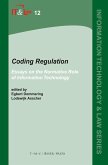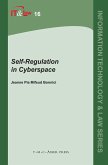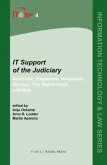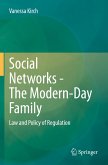Chapter 1 INTRODUCTION 1. 1 Research Objective 1 The modern State is unlikely to be the end configuration of organized political life. Throughout history, both the nature and manifestation of political organization have continuously adapted to the specific needs of the age. Despite the natural tendency of organizations to retain a certain status quo, there is no reason to suggest that the dominant form of political organization, the State, has lost the ability to adapt to changing circumstances. Today's needs are shaped by a process of glob- ization increasing the level of transnational interdependence between actors in terms of social, economic and political activity. As such, this process is likely to inform the next transformation of organized political life. This inquiry sets out to shed some light on the consequences of this transformation for the modern State in the view of its constitutional commitments and responsibilities using the Internet's - terdependency-imposing nature as foundation for the inquiry. In investigating the way in which traditional public commitments and responsibilities take shape on the Internet, this inquiry aims to further our understanding of how globalization inf- ences decision making in the public interest. The vast amount of literature on the effects of globalization on the State roughly divides into three categories. The first strand of literature stresses the economic dimension of globalization.

